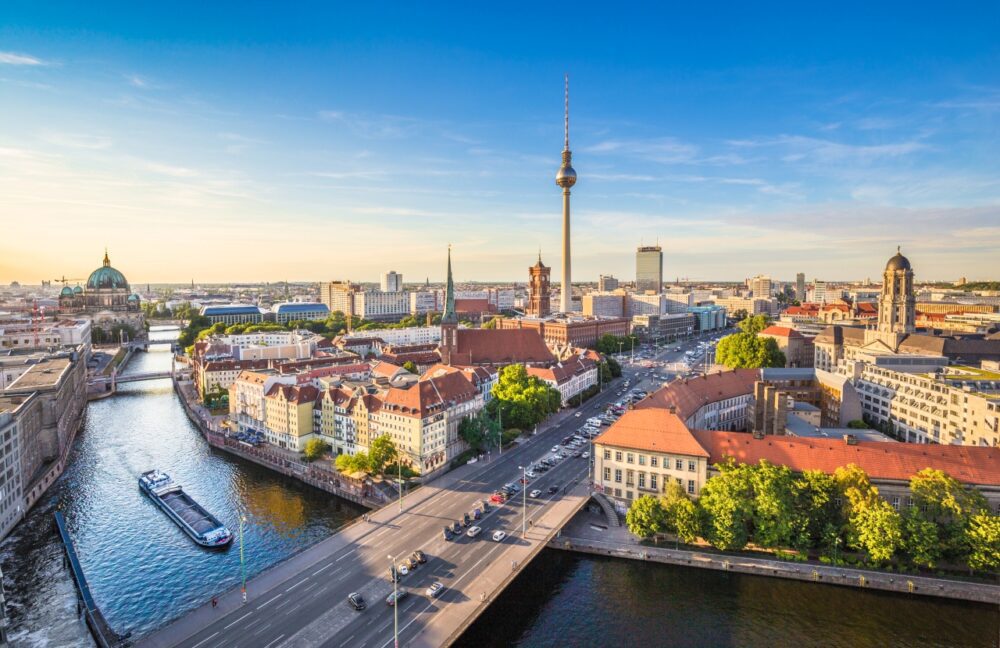
Is Berlin worth visiting? Absolutely! The first time I visited Berlin, I was captivated by its vibrant energy and rich history. Walking through the city, I felt like every corner told a story—from the iconic Brandenburg Gate to the remnants of the Berlin Wall, reminders of the past are everywhere. Yet, Berlin isn’t stuck in history—it’s a city that pulses with creativity, offering cutting-edge art, eclectic neighbourhoods, and some of the best nightlife in Europe.
As Germany’s capital, Berlin is a place where history and modernity collide. It’s a city that has witnessed some of the most pivotal events in European history while also leading the way in culture and innovation. Whether you’re exploring world-class museums on Museum Island, strolling through the vast Tiergarten park, or tasting street food at a bustling market, Berlin has something for everyone. It’s a destination that’s as dynamic as it is diverse. But is Berlin worth visiting for you?
In this blog post, we’ll uncover the top 10 reasons why Berlin should be on your travel list, from its historical landmarks to its vibrant arts and food scenes. Plus, we’ll share travel tips to help you make the most of your visit. Keep reading, and you’ll see why Berlin is one of Europe’s most exciting cities to explore.
Table of Contents
Pros – Reasons You Should Visit Berlin
1. A City with a Fascinating and Complex History
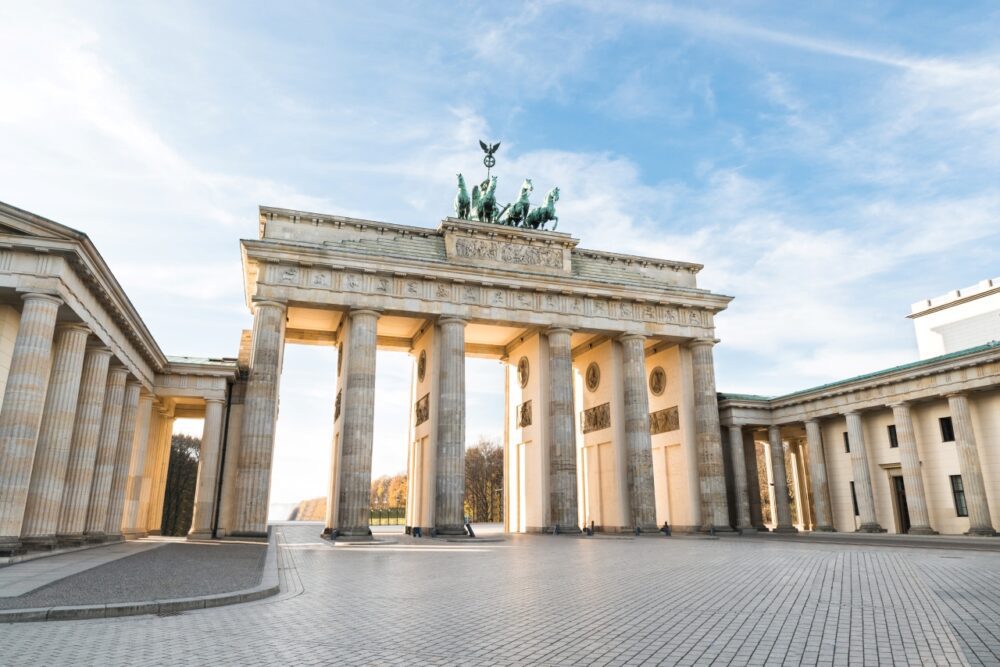
Berlin is one of the most historically significant cities in the world, with a past that has shaped not just Germany but all of Europe. From the Prussian era to World War II and the Cold War, the city is filled with historic landmarks that tell the story of its turbulent past. The Berlin Wall, the Brandenburg Gate, and the Holocaust Memorial are just a few of the must-visit sites that give visitors a deep understanding of Berlin’s role in global history.
Walking along the remains of the Berlin Wall at the East Side Gallery was a surreal experience. Seeing the colorful murals painted over the once-divisive barrier was a powerful reminder of how the city has transformed itself. I also visited the Topography of Terror, a museum on the site of former Nazi headquarters, which provided an eye-opening look at Germany’s dark past. Few cities offer such a profound connection to history while also embracing a modern and progressive future.
2. An Exciting and Ever-Changing Art Scene
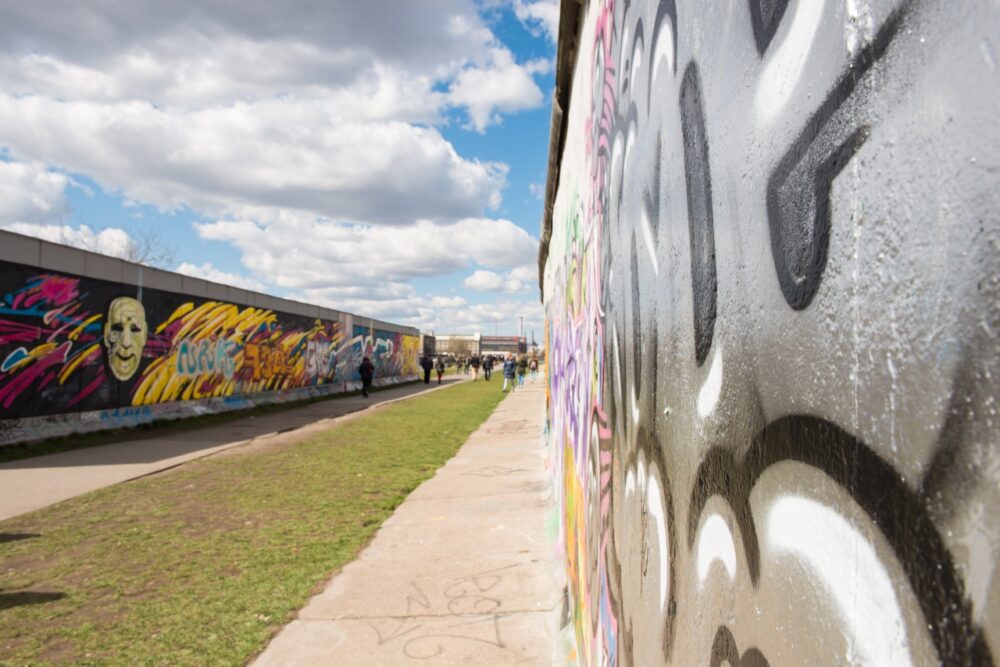
Berlin has long been a hub for artists, musicians, and creatives, making it one of the most culturally vibrant cities in Europe. The city’s street art, alternative galleries, and underground cultural spaces make it an exciting destination for anyone who appreciates creativity in all its forms.
I spent a day exploring the RAW-Gelände, a former industrial complex turned alternative cultural space filled with graffiti, independent art galleries, and music venues. Every wall was covered in colorful street art, and there was a raw, unpolished energy that made the area feel like a living, breathing work of art. Even if you’re not an art expert, Berlin’s creativity is impossible to miss—it’s in the buildings, the people, and the city’s rebellious spirit.
3. Incredible Museums for Every Interest
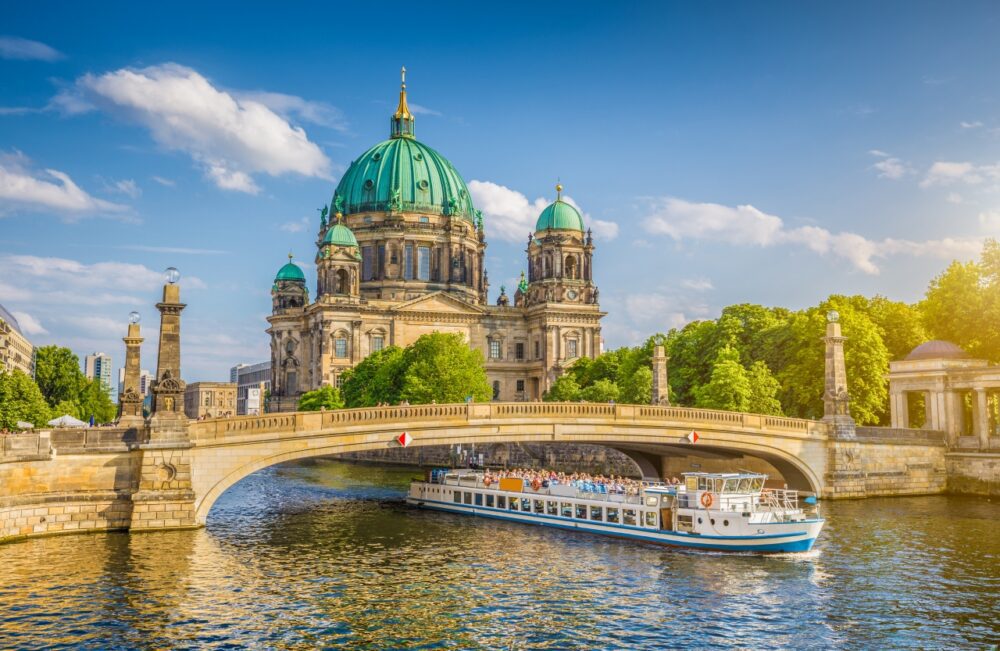
Berlin has over 170 museums, covering everything from ancient artifacts to modern art, making it one of the best cities in Europe for museum lovers. Museum Island, a UNESCO World Heritage Site, is home to five world-class museums, including the Pergamon Museum, which houses breathtaking Babylonian and Greek antiquities.
I spent hours inside the DDR Museum, an interactive museum that immerses visitors in life in East Germany under Soviet rule. Sitting inside a reconstructed East German apartment and flipping through communist propaganda made history feel tangible. Whether you’re into history, science, or contemporary art, Berlin’s museums offer something for every interest.
4. A Nightlife Scene Like No Other
Berlin’s nightlife is legendary, known for its anything-goes attitude, underground clubs, and marathon electronic music parties. Unlike in other cities, clubs in Berlin don’t operate on a strict schedule—many places stay open well into the next day, or even through an entire weekend.
I went to Sisyphos, a massive open-air club set in a former factory, and the atmosphere was unlike anything I had ever experienced. People were dancing in the sand, chilling in hammocks, and moving between different music areas, creating an almost festival-like vibe. Whether you’re into techno, jazz, or casual beer gardens, Berlin has a nightlife scene that caters to all tastes.
5. A City That is Surprisingly Affordable for a Capital
Compared to other major European capitals like Paris or London, Berlin is surprisingly budget-friendly. Accommodation, food, and entertainment are all more affordable, making it one of the best big cities to visit without breaking the bank.
I was pleasantly surprised at how cheap Berlin’s food and drinks were, especially for a capital city. A full meal at a local restaurant cost significantly less than in other European capitals, and public transport was reasonably priced. Even though Berlin is a world-class city, it remains accessible for travelers on all budgets.
6. Some of the Best Street Food in Europe
Berlin has an incredible street food scene, influenced by its multicultural population. The city is famous for dishes like currywurst, doner kebabs, and giant pretzels, all of which make for an affordable and delicious meal on the go.
I had the best doner kebab of my life at Mustafa’s Gemüse Kebap, a small food stand with a line that stretched down the block. The mix of grilled meat, fresh veggies, and flavorful sauces was worth the wait. For a classic Berlin experience, I also tried currywurst—sliced sausage covered in a spiced ketchup sauce, served with crispy fries. Simple, messy, and absolutely delicious.
7. A Green and Eco-Friendly City
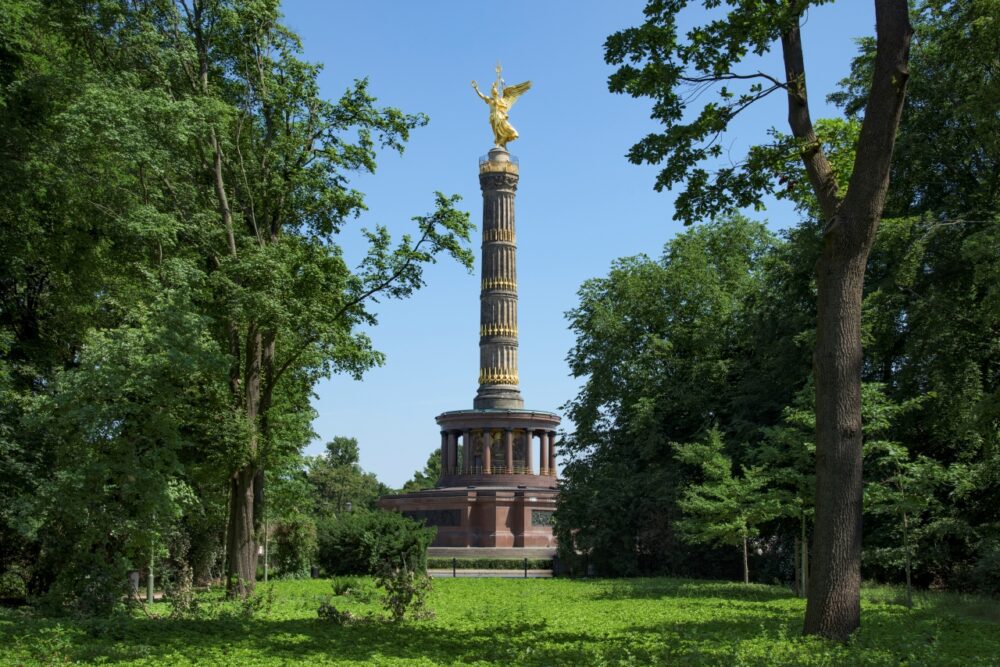
Despite being a major urban center, Berlin has an incredible amount of green space. Parks, lakes, and forests surround the city, making it easy to escape into nature without leaving town. The Tiergarten, Berlin’s largest park, is right in the middle of the city, offering a peaceful retreat from the urban energy.
I rented a bike and cycled through Tempelhofer Feld, a former airport turned into a massive public park. Seeing people skateboarding down old runways and having picnics on the grass was a perfect example of Berlin’s ability to transform its past into something new and exciting. The city’s commitment to sustainability, with excellent cycling infrastructure and eco-friendly initiatives, makes it a great destination for environmentally conscious travelers.
8. A Strong Sense of Freedom and Individuality
Berlin is a city where people are free to be whoever they want to be. There’s an open-minded, non-judgmental energy that makes it one of the most welcoming and inclusive places in Europe. The city has long been known as a haven for creatives, LGBTQ+ communities, and alternative lifestyles.
Walking around neighborhoods like Kreuzberg and Friedrichshain, I saw people dressed in every imaginable style, from punk-inspired outfits to high-fashion streetwear. There’s no pressure to fit in—Berlin embraces individuality in a way that few other cities do. Whether you’re visiting for a weekend or staying long-term, it’s a city that makes you feel comfortable just being yourself.
9. One of the Best Public Transport Systems in Europe
Berlin’s public transport system is efficient, reliable, and easy to navigate. The U-Bahn (underground metro), S-Bahn (suburban train), trams, and buses connect every part of the city, making it simple to get around without a car.
I found the system incredibly user-friendly, even for someone visiting for the first time. The trains were punctual, and the city’s extensive network meant that I never had to wait long to get where I needed to go. The best part? The same ticket works across buses, trams, and trains, making travel hassle-free.
10. A City That is Constantly Evolving
Berlin is a city that never stays the same for long. It is constantly changing, reinventing itself, and pushing cultural boundaries. New creative spaces, restaurants, and artistic movements are always emerging, making every visit to the city feel fresh and different.
I visited an abandoned industrial space that had been turned into an outdoor art gallery and beer garden, a perfect example of Berlin’s ability to turn the old into something new. Whether it’s music, fashion, or nightlife, the city is always evolving, which is why so many people return again and again. No matter how many times you visit, there’s always something new to discover.
Cons – Things to Consider When Visiting Berlin
1. The Weather Can Be Cold, Gray, and Unpredictable
Berlin’s weather is one of its biggest downsides, especially if you’re visiting outside of summer. Winters are long, cold, and often gloomy, with short daylight hours and temperatures frequently dropping below freezing. Even in spring and autumn, the weather can be unpredictable, with sudden rain showers and chilly winds.
I visited Berlin in late November, and the city felt much colder than I expected. The sky was a constant shade of gray, and a light drizzle seemed to follow me everywhere. Even though the Christmas markets helped add some festive cheer, I found myself rushing indoors more often than I would have liked. If you’re planning a trip, packing layers and checking the forecast is essential, especially if you’re visiting in the colder months.
2. The City is Huge and Can Feel Overwhelming to Navigate
Berlin is not a compact city like Amsterdam or Prague—it’s sprawling, with attractions spread far apart. This means that getting from one part of the city to another can take time, and without a well-planned itinerary, you may end up spending a lot of your day on public transport.
I underestimated the size of Berlin on my first visit. What looked like a short trip on the map turned into a 45-minute journey across the city. Even within central areas, like moving from Museum Island to Kreuzberg or Friedrichshain, the distances can be deceiving. While Berlin’s public transport system is efficient, visitors should be prepared for longer travel times between attractions and plan accordingly.
3. The Service Culture Can Feel Cold or Unfriendly
Berlin is not known for warm, overly attentive service in restaurants, cafés, or shops. Unlike in Southern European countries, where hospitality is a priority, service in Berlin is often more direct and no-nonsense. Waiters may not check on you frequently, and in some places, you might even have to wave them down to get the bill.
I had lunch at a well-known café in Mitte and waited nearly 20 minutes before anyone even acknowledged me. The staff wasn’t rude, but they were indifferent, and I quickly learned that in Berlin, you have to be proactive when ordering or asking for assistance. While this isn’t a deal-breaker, it can be a surprise for visitors used to more attentive service.
4. The City’s Alternative Vibe Isn’t for Everyone
Berlin is known for its edgy, alternative, and often gritty atmosphere. While many people love the city’s industrial charm, street art, and raw, unpolished look, others may find it a bit too rough around the edges. Some areas, like Neukölln and parts of Kreuzberg, have a more rebellious, graffiti-covered aesthetic that might not appeal to everyone.
I walked through parts of Friedrichshain at night and found that some areas felt a little too dark and unkempt. While Berlin is generally safe, the city doesn’t have the pristine, picture-perfect feel of places like Vienna or Paris. If you prefer well-manicured streets and elegant architecture, Berlin’s rough charm might take some getting used to.
5. Cash is Still King, and Card Payments Aren’t Always Accepted
Despite being a modern, forward-thinking city, Berlin still has a surprisingly cash-heavy economy. Many smaller restaurants, bars, and cafés do not accept credit or debit cards, which can be frustrating if you’re used to paying by card everywhere. ATMs are widely available, but not all businesses have clear signs indicating their payment policies.
I walked into a popular brunch spot, ordered my meal, and only found out when I went to pay that they only accepted cash. I had to leave, find an ATM, and come back, which was a hassle. After that, I made sure to always carry some cash with me. While larger stores and tourist attractions accept cards, having euros on hand is essential when dining at local restaurants or visiting smaller businesses.
When to Visit Berlin
The best times to visit Berlin are spring (April to June) and autumn (September to October), when the weather is mild and ideal for strolling through the city’s parks, open-air markets, and historic sites. Spring brings blooming flowers and festivals, while autumn features beautiful foliage and cultural events like the Festival of Lights. Summer (July and August) is Berlin’s busiest season, with warm temperatures and a packed calendar of outdoor concerts, beer gardens, and river cruises, but it also brings larger crowds. Winter is quieter, but December is magical with Berlin’s famous Christmas markets adding festive charm to the city.
How to Get to Berlin
Berlin is served by Berlin Brandenburg Airport (BER), located about 25 kilometres southeast of the city centre. The airport is well connected by flights from major airlines like Lufthansa, easyJet, and Ryanair, linking Berlin to cities across Europe and beyond. From the airport, the FEX express train, regional trains, or the S-Bahn (lines S9 and S45) take about 30 minutes to reach the city centre. Berlin is also accessible by high-speed trains from other German cities, with Deutsche Bahn ICE trains connecting it to places like Hamburg, Munich, and Frankfurt in just a few hours.
Where to Stay in Berlin
Berlin offers diverse neighbourhoods, each catering to different tastes and budgets:
- Luxury: Mitte – The historic and cultural heart of Berlin is ideal for luxury travellers. Stay at the Hotel Adlon Kempinski, located near the Brandenburg Gate, or Regent Berlin, both offering upscale comfort and proximity to major sights.
- Mid-range: Kreuzberg – Known for its vibrant, multicultural vibe and buzzing arts scene, Kreuzberg offers great mid-range options like Orania.Berlin and Hotel the Yard, perfect for those who want to experience Berlin’s creative side.
- Budget: Friedrichshain – A lively neighbourhood known for its nightlife, street art, and affordable stays. Try Sunflower Hostel or Industriepalast Hostel, both providing budget-friendly accommodations with easy access to trendy cafes and bars.
Getting Around Berlin
Berlin’s public transport network is extensive and includes U-Bahn (subway), S-Bahn (regional trains), trams, and buses, all managed by the BVG. A single ticket covers all modes of transport, and day passes offer unlimited travel, making them a cost-effective option for exploring the city. For shorter distances, Berlin’s bike-sharing schemes, like Lime or Deezer Nextbike, are a great way to explore, particularly in bike-friendly areas like Tiergarten or along the Spree River. Taxis and rideshare options are available, but with such excellent public transport, they’re rarely necessary. Walking is also enjoyable, especially in neighbourhoods like Mitte, Kreuzberg, and Prenzlauer Berg.
How Long to Spend in Berlin
Four to five days is ideal for Berlin, allowing you to explore the city’s key landmarks, such as the Brandenburg Gate, Berlin Wall Memorial, and Museum Island, while also delving into its diverse neighbourhoods. With five days, you’ll have time to experience Berlin’s vibrant cultural scene, from its galleries and museums to its famous nightlife. An extra day allows for a side trip to Potsdam, with its stunning palaces and gardens, or a deeper dive into the city’s history at sites like Sachsenhausen Memorial. Berlin’s dynamic mix of history, culture, and modernity ensures there’s always more to discover.
Conclusion
So, is Berlin worth visiting? Absolutely! With its rich history, dynamic cultural scene, and a vibe that’s both edgy and welcoming, Berlin is a city like no other. Highlights like the Berlin Wall Memorial, the Reichstag, and the lively Kreuzberg district make it a must-see. While its sprawling size and gritty edges might not appeal to everyone, those who embrace its diversity will find endless discoveries. If you’re ready to explore Germany’s most iconic and vibrant city, start planning your trip to Berlin today—you won’t be disappointed!
